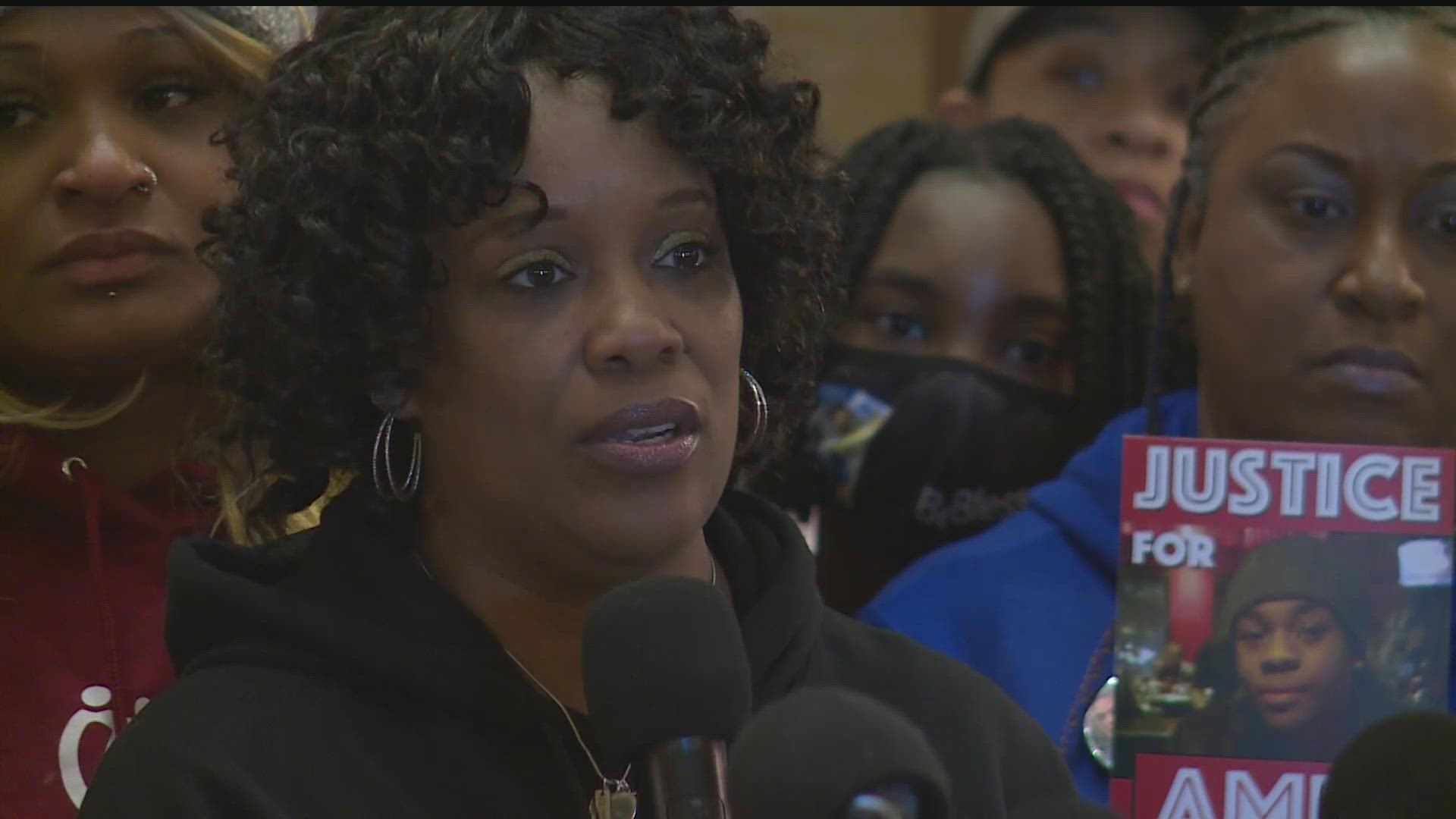MINNEAPOLIS — A coalition of community groups will gather at the State Capitol Thursday afternoon to mark one year since the shooting of Amir Locke by a police officer, and call for justice in his death.
Calling it the Amir Locke "Angelversary," the activists will mass in the capital rotunda at 3:45 p.m. to request the release of all body camera footage, prosecution of the officer who fired the fatal shots and a total ban on no-knock warrants in Minnesota.
In another development on the anniversary of Locke's death, attorney Ben Crump announced he is filing a civil lawsuit against the city of Minneapolis on behalf of Locke's family. Crump and fellow attorneys Antonio Romanucci and Jeff Storms will share details of the legal action Friday during a news conference set for 10:30 a.m.
“We are here to stand in solidarity with his families, because here we are a year later and no charges was brought against the officers that took the life of a man,” said Toshira Garraway, the founder of Families Supporting Families Against Police Violence.
Garraway led the group of dozens of advocates in a chant.
“Say his name,” she said.
“Amir Locke,” the crowd responded.
Locke’s mother, Karen Wells, asked for nine seconds of silence when she talked to the crowd.
She says that was the amount of time police officers entered the apartment before shooting her son.
“There’s not a day that does by that I don’t say my son's name," she said. "That I don’t have a conversation with Amir. I don’t look at his pictures, this is insane what is going on in the state of Minnesota."
It was the morning of February 2, 2022 when officers broke through the door of the Bolero Flats Apartments in downtown Minneapolis. They were executing a no-knock warrant involving a St. Paul murder, but instead of the suspect officers encountered the 22-year-old Locke sleeping on a couch in the living room.
Body camera footage captured Locke waking, apparently startled, and reaching for what turned out to be a handgun he had a permit for. A Minneapolis SWAT officer opened fire, and Locke was dead just 9 seconds after the incident began.
Locke's cousin, Mekhi Speed, was the subject of the warrant. The then-17-year-old was later arrested and pleaded guilty to second-degree murder. Speed will serve more than 16 years in prison after fatally shooting a St. Paul man during a drug deal.
After weeks of consideration, now-former Hennepin County Attorney Mike Freeman announced that charges would not be filed against officer Mark Hanneman, whose file showed three complaints filed against him since 2016 but no sustained disciplinary actions.
"After a thorough review of all available evidence, however, there is insufficient admissible evidence to file criminal charges in this case," Freeman said at the time of the decision. "Specifically, the State would be unable to disprove beyond a reasonable doubt any of the elements of Minnesota’s use-of-deadly-force statute that authorizes the use of force by Officer Hanneman. Nor would the State be able to prove beyond a reasonable doubt a criminal charge against any other officer involved in the decision-making that led to the death of Amir Locke."
The decision not to prosecute set off demonstrations and widespread calls for passage of the George Floyd Justice and Policing Act, a federal package that would legally hold law enforcement accountable for misconduct, improve transparency through data collection, and reform police training and policies.
In Minneapolis, Locke's death does appear to have spurred changes in policy. Mayor Jacob Frey effectively outlawed no-knock warrants, and a new police oversight system is set to take effect this spring.
Vice President Kamala Harris renewed the call to pass the George Floyd Act Wednesday at the funeral of 29-year-old Tyre Nichols, who died after suffering devastating injuries inflicted during an encounter with Memphis police. Seven officers have been fired or disciplined so far in Nichols' death.
Watch more local news:
Watch the latest local news from the Twin Cities in our YouTube playlist:

